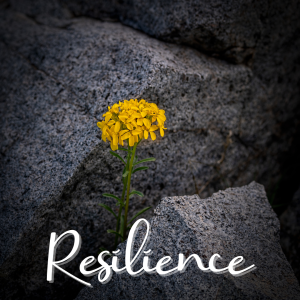Boosting Up Resiliency And Why It Matters
The idea of blaming someone else for your own mistakes has always seemed strange to me. Even stranger is the idea that society has created a norm that allows people to do this when things don’t go according to plan.
Without question, the lessons I’ve learned from my failures are greater than those I learned from my successes.
Wanna know why?
It’s because I was taught to be resilient.

Resilience is the ability to cope with stress in a constructive way, and it offers numerous benefits. It’s linked to longer life, fewer rates of depression, and greater life satisfaction.
Many people are born resilient, like a child who falls off a bike and immediately gets back on to pedal away. If that’s not you, take heart: resilience is a skill that you can practice every day and to do so, incorporate the following into your daily life:
- Relax
Learn the wonders of relaxation. You’ll be better able to deal with obstacles in your life if you take care of your mind and body. Make sure you get plenty of sleep, try a new workout, or practice physical relaxation techniques like yoga, tai chi, meditation, guided imagery, or deep breathing exercises to elicit a response.
- Lean on your social connections
People who have significant connections are more resistant to stress and more satisfied in life. Because you have a strong support network to fall back on, the more genuine friendships you create, the more resilient you will be. So seek assistance when you require it! (Keep in mind that treating people with compassion and sensitivity is also crucial.)

3. Ramp up your Self-Confidence
Resilient people, on the other hand, are convinced that they will achieve in the end, despite whatever setbacks or stresses they may be experiencing. This self-confidence also allows individuals to take risks: when you gain confidence and a strong sense of self, you have the strength to keep pushing forward and take the risks you need to move ahead.
4. Develop a positive outlook.
Negative thoughts do not disrupt resilient people’s efforts. Instead, they think positively all of the time. When anything goes wrong, pay attention to how you talk to yourself – if you find yourself making assertions that are permanent, pervasive, or personalized, modify your thinking. See the upside rather than the downside of a predicament.

5. Choose the Right Response
There will be bad days, and we will all face life crises. But we have a choice in how we respond: We can panic and react negatively, or we can choose to remain calm and logical to take control and find a solution. It’s up to you how you respond.

Recovering from stress or adversity is an important part of life throughout the years, but especially as we age. We face many transitions during this time, including health problems, job, income, and home changes, the loss of loved ones, and isolation from families and friends. Our ability to adapt to change helps determine what our lives will look like in the future. You, being resilient will have a big impact in your life and it matters.



